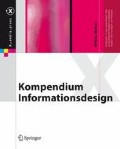Abstract
Wikis, Podcasts, Videocasts, Smartphones, Virtual Environments – das sind E-Learning-Lösungen, die nur darauf warten, eingesetzt zu werden. Doch meistens findet E-Learning noch in klassischen Lernumgebungen statt. Der Beitrag blickt zurück zu den Anfängen von E-Learning, fragt nach dem Mehrwert von »E«-Learning im Vergleich zum konventionellen Face-to-Face-Unterricht, gibt Beispiele für E-Learning-Plattformen und Lernen mit Hypermedia, erklärt adaptives E-Learning und zeigt auf, was Spielen mit Lernen zu tun hat.
Access this chapter
Tax calculation will be finalised at checkout
Purchases are for personal use only
Preview
Unable to display preview. Download preview PDF.
References
Aldrich C (2003) Simulations and the future of learning; An Innovative (and Perhaps Revolutionary) Approach to e-Learning, Pfeiffer
Artinger V, Hojas R, Kienreich N, Reimoser NH, Robier H, Schubert S, Strassberger D, Valentan C (2003) e-Science Project: Usability analysis and re-design of the eScience platform. Projektarbeit im Wintersemester 2002 / 2003; IND00
Beaumont I, Brusilovsky P (1995) Adaptive Educational Hypermedia: From Ideas to Real Systems. Proceedings of ED-MEDIA 95, Graz, Österreich; 17.–21. Juni 1995, pp 93–98
Begg M, Ellaway R, Dewhurst D, Macleod H (2006) Virtual Patients: considerations of narrative and game play. In: Burmester M, Gerhard D, Thissen F (eds) Digital Game Based Learning, Proc. Of the 4th International Symposium For Information Design, Hochschule der Medien Stuttgart, pp 101–113
Boyle CF, Encarnacion AO (1998) MetaDoc: and Adaptive Reading System. Adaptive Hypertext and Hypermedia. Kluwers Academic Publ., NL
Brusilovsky P (1998) Methods and Techniques of Adaptive Hypermedia. Adaptive Hypertext and Hypermedia (eds: Brusilovsky, Kobsa, Vassileva). Kluwers Academic Publ., NL
Buckley D, Coleman W, Cohen M, Stewart R (1999) Interactive Multimedia Learning Environments: Tools to Foster Transition to the Learning Paradigm. In: Proceedings of WebNet, 99. AACE, Charlottesville, pp 155–159
Felder R, Soloman B (o.J.-a) Index of Learning Styles Questionnaire. http://www.engr.ncsu.edu/learningstyles/ilsweb.html (Zugriff 26.10.03)
Felder R, Soloman B. (o.J.-b) Learning styles and strategies. http://www.ncsu.edu/felder-public/ILSdir/styles.htm (Zugriff 26.10.03)
Garbe D (2001) Schulen ans Netz. In: Apflauer R, Reiter A (Hrsg) Schule Online: Das Handbuch zum Bildungsmedium Internet. Public Voice, Wien, pp 210–218
Hockemeyer C (1997) RATH: A Relational Adaptive Tutoring Hypertext WWW – Environment, Institut für Psychologie, Karl-Franzens-Universität Graz 1997 / 3
Hothi J, Hall W (1998) An Evaluation of Adapted Hypermedia Techniques Using Static User Modelling. Proceedings of the 2nd Worshop on Adaptive Hypertext and Hypermedia of the Hypertext, 98. Pittsburgh, USA
Huff C (2002) Gender, software design, and occupational equity. SIGCSE Bull. 34(2):112–115
Kapp KM (2006) Teaching Facts with Fun, Online Games. Learning Circuits, ASTD’s Source for E-Learning, (Feb. 2006). http://www.learningcircuits.org/2006/February/kapp.htm (Zugriff 15.09.06)
Kipcak O (ed) (2007) VIPA virtual campus for virtual space design provided for european architects. Edition mono / monochrom, Graz, AT
Papert S (1980) Mindstorms: Children, computers, and powerful ideas. Basic Books, New York
Pivec M, Baumann K (2004) The Role of Adaptation and Personalisation in Classroom-Based Learning and in e-Learning. Special Issue of J.UCS »Human Issues in Implementing eLearning Technology«. http://www.jucs.org/jucs_10_1/ (Januar 2004)
Pivec M, Schönbacher T (2007) Evaluation Methods and Results. VIPA virtual campus for virtual space design provided for european architects (ed. Kipcak). Edition mono / monochrom, Graz, AT, pp 49-52
Prensky M (2001) Digital Game based learning. McGraw-Hill, New York
Reith H (o.J.) Internet in der Schule: Neues Lernen am PC.
http://www.heise.de/newsticker/meldung/7972 (Zugriff 11.02.00)
Reiser R, Dempsey J (eds) (2001) Trends and Issues in Instructional Design and Technology. Prentice Hall, Englewood Cliffs, NJ, S 17
Robinson P (1998) Strategies for Designing Instruction in Web-based Computer Conferencing Environments. http://www.inform.umd.edu/About/.IIT/probinso/epiphany/ strategies.html (Zugriff 15.05.03)
Seeberg C (2003) Life Long Learning. Springer, Heidelberg, Berlin
Stangel W (2000) Internet @ Schule (Vergleich von 2 Befragungen – Vergleich von Daten, steigende Tendenz). StudienVerlag, Innsbruck, Wien
http://www.stangl-taller.at/INTERNETSCHULE/NETSCHULE2000/diskussion.html
Vygotsky L (1978) Mind in Society: The development of higher psychological processes. Harvard University Press, Cambridge
Wolf KD (2007) Gender Mainstreaming of E-Learning Courses – Theoretical Review, Design Considerations and Usage Differences. In Sabine Zauchner, Karin Siebenhandl & Michael Wagner (Eds.), Gender in E-Learning and Educational Games. A Reader. Studienverlag, S 171–193. http://www.ifeb.uni-bremen.de:2004/cgi-bin/ WebObjects/Uniservity.woa
Author information
Authors and Affiliations
Rights and permissions
Copyright information
© 2008 Springer-Verlag Berlin Heidelberg
About this chapter
Cite this chapter
Pivec, M. (2008). Informationsdidaktik: E-Learning. In: Kompendium Informationsdesign. Springer, Berlin, Heidelberg. https://doi.org/10.1007/978-3-540-69818-0_11
Download citation
DOI: https://doi.org/10.1007/978-3-540-69818-0_11
Publisher Name: Springer, Berlin, Heidelberg
Print ISBN: 978-3-540-69817-3
Online ISBN: 978-3-540-69818-0
eBook Packages: Computer Science and Engineering (German Language)

